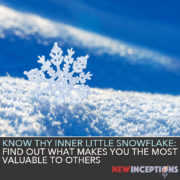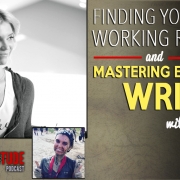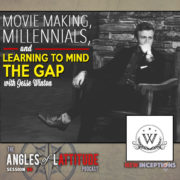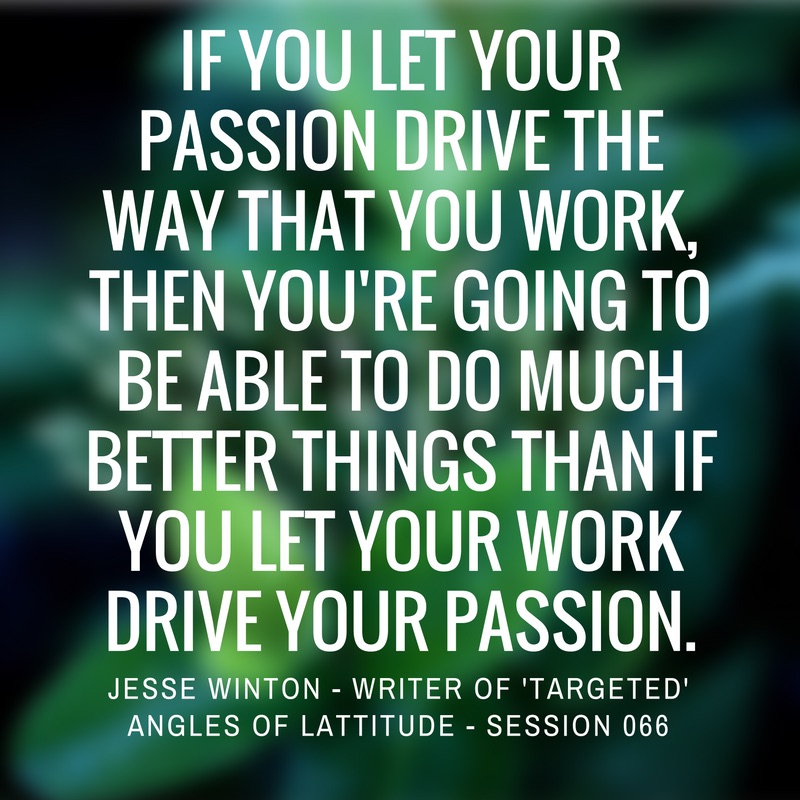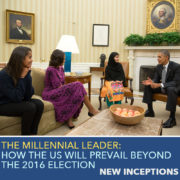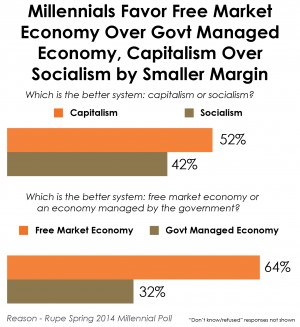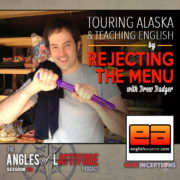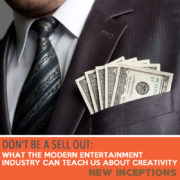Know Thy Inner Little Snowflake: Find Out What Makes You The Most Valuable to Others
One thing that the many non-millennials of the world make fun of millennials for is the fact we believe that we’re all pretty “little snowflakes”.
Well, truth is, we are.
But not in the way that we think we deserve a special life. Because in that respect, we don’t deserve anything. Sorry, but there are no participation trophies in real life.
We and everyone else in the world is a ”precious little snowflake” because we all have a uniqueness to us.
We have passions and interests not everyone else has.
(If you believe otherwise, then maybe you’re looking forward to the day that 1984 is a reality.)
To be a true creative, you’ll need to figure out what those are in order to be the most valuable to others. You need to find out what makes you, you.
You’ll need to become more self aware.
In this post, I’ll give you some pointers in how you can find out how you’re different from your peers so you share what you’re about to others a bit easier!
My Journey to Finding Out What I’m Interested In
I’ve always been someone who makes friends on the web rather easily. In fact, oddly enough, for many millennials, it’s almost easier to make friends online, than it is in person.
The first friends that I made online were through a chat forum with my original ISP. Every day after school, we’d hop onto the NetUSA1.net chat, and people would just go about discussing their days.
I quickly came to find out that I had a lot of interests in common with people who didn’t go to my school. Today I’d even go as far as saying I simply didn’t fit at my high school.
I didn’t realize it at the time, but was a proto-millennial.
My classmates were more Gen X influenced. Even today when I talk to many of them, I realize that they’re not readily accustomed to the web and technology as I and younger millennials are. For many of them, they’re technology immigrants. They only utilize it when they have to.
That said, I realized what sets me apart from my peers in this regard.
I excel at understanding entrepreneurial tech and love to show others how to use it in a way that will help multiply their business results.
Have Conviction in What You’re Doing
As a creator, you don’t really want to pursue anything unless you strongly believe that it needs to exist, or what you’re discussing is an important topic.
Just because you’re good at something, doesn’t mean that doing that something professionally is a good match for you.
Take, for example, when I was teaching algebra for a couple of years.
Could I do it? Sure! I love to teach.
Could I teach it? Yeah.
Did I have a believe that those who I was teaching it to needed to know it? Possibly.
Did I really envision myself teaching algebra for a prolonged period of time? Nope!!
Also, when other folks start finding out what you’re about, you don’t want to be changing your focus.
You want to be known as the guy or gal who helps ________ do ______ so that others can ________.
If you’re bouncing around from thing to thing and those topics aren’t connected, then people aren’t really going to understand what you’re all about. This might mean that you lose in opportunity, and potential fans and/or clients down the road.
Show That Belief through Passion and Energy
This goes off the last one a bit, but you’ll need to be pumped each time you have the opportunity to share or do something involved with whatever it is that you like discussing. An easy way to find out what pumps you up is finding out what you naturally talk and learn about in your free time.
When I was making those friends on the web, we’d discuss all kinds of geeky things. From games to computers, and even science. We’d also chat about all the crap that we had to deal with in school. Even back then, I can see the seeds of what I’m discussing with you here via New Inceptions.
When you’re thrilled to discuss a topic with other people, it shows. For one, you likely won’t know when to stop going on about the topic. (Been there, done that – still do it.) And two, they’ll probably get energetic from the conversation just because you are. Even if tomorrow they need another kick of your motivation. But hey, you’ll be glad to share it, right?
Give Your Perspective on Other’s Results, Content, and Role Modeling through your own Experiences
Whatever is important to you, chances are there’s going to be other people you learned it from. Whether you’re into cars, video games, sports, fitness, etc., there’s other people who are already doing what you’re going to be doing – just maybe not exactly how you want to do your version.
First, your small difference in how you do things is what’s going to separate you from them. And secondly, you can use those differences to discuss your perspective on what they’re talking about.
I’ve mentioned so many people in this blog that I’ve learned things from over the years. What sets me apart from Pat Flynn and SPI, for example, is that on my show, I have co-hosts. Or the fact that my guests are easy to relate to for beginners. Or, perhaps it’s the fact that I have a more academic background than he does.
Point being, you can talk the same topics as other people, but let who you are guide the actual conversation.
Surround Yourself with People You Want to Be Like
Ok, so this one is fairly simple. You’ve heard that you’re the average of the 5 (or 10) people you’re around the most? Yeah, other people are going to judge you based on who you surround yourself with.
If other people are considered gurus in their field of expertise and you hung around them, would you automatically be considered a guru as well? Maybe.
If you were hanging out with bikers in a bar somewhere and some saw you there – would they consider you a biker? It’s very likely.
You’re the company you keep, internally and externally.
Synthesize and Deliver Your Own Product or Services
Once you start expanding on the ideas of people in your field and you’re getting the chance to network with people you admire and want to make part of your network, wouldn’t it make sense to actually walk the walk?
For us in the online information world, that product comes in the form of content. Whether it’s free like this blog post, or it’s a premium course, content is a product.
As a creator, you need to have your own product or services to deliver and/or offer as well.
Experience
If you’re just starting out in your own business or project, people might question your credibility because your new. The way that most people deal with this is through leveraging their experience.
For example, maybe you’re just starting out as a woodworker like David Picciuto and you want to make a name for yourself. What he did was rely on his knowledge he obtained from his marketing years to help him develop his platform on YouTube. Maybe you don’t have a marketing background, but you might know someone that does and you can have them make videos of your work. They get noticed as the videographer, you get noticed as the woodworker.
Win-win.
Be Current
This one is pretty simple. No one wants old information unless it’s timeless information. But even then, you need to look like you’re keeping with the times. If your site looks wonky and unprofessional, then people are going to get that impression of you, the owner.
If your branding looks like it’s something straight from 2007 – then people are going to think that it’s from an old site OR they’re going to think you’re just not with the times.
Obviously this has more ramifications in some industries more than others.
Being current in fashion is going to be much more important than say here with fundamental business advice.
Make Yourself Readily Available
Here’s the other thing. Make sure you actually respond to comments, emails, and posts from your followers. If you don’t engage, they won’t either. And if they’re not engaging, how do you even know they’re there?
Also, be sure to post in as many places as you can. Pat used to have a piece of advice to “be everywhere”. He still might say that, but you can only be in so many places. Choose the a few that you can readily post to (blogging, Facebook, YouTube, etc.) and stick with those.
Followers Do Count – Sorta
There’s two schools of thought on whether the number of followers actually count when it comes to social media.
When it comes to actual sales, no, they don’t count. According to Dustin Stout and many others, engagement is what you’re looking for.
However, if you’re looking to bring in more followers, then perhaps it does count. You can’t have engagement without having followers in the first place, right? Would you rather follow and/or pay attention to someone who has 100 followers or 1000?
Action Steps
So there you go. A few ways that you can start working on today that will help you boost your appeal to potential new clients.
Differentiating yourself can make all the difference in the online space.
Are there any methods that I forgot? Let me know below if you can think of any!
Bonus
For you deep thinkers, I’ll leave you with this TEDx talk of Julian Baggini:

